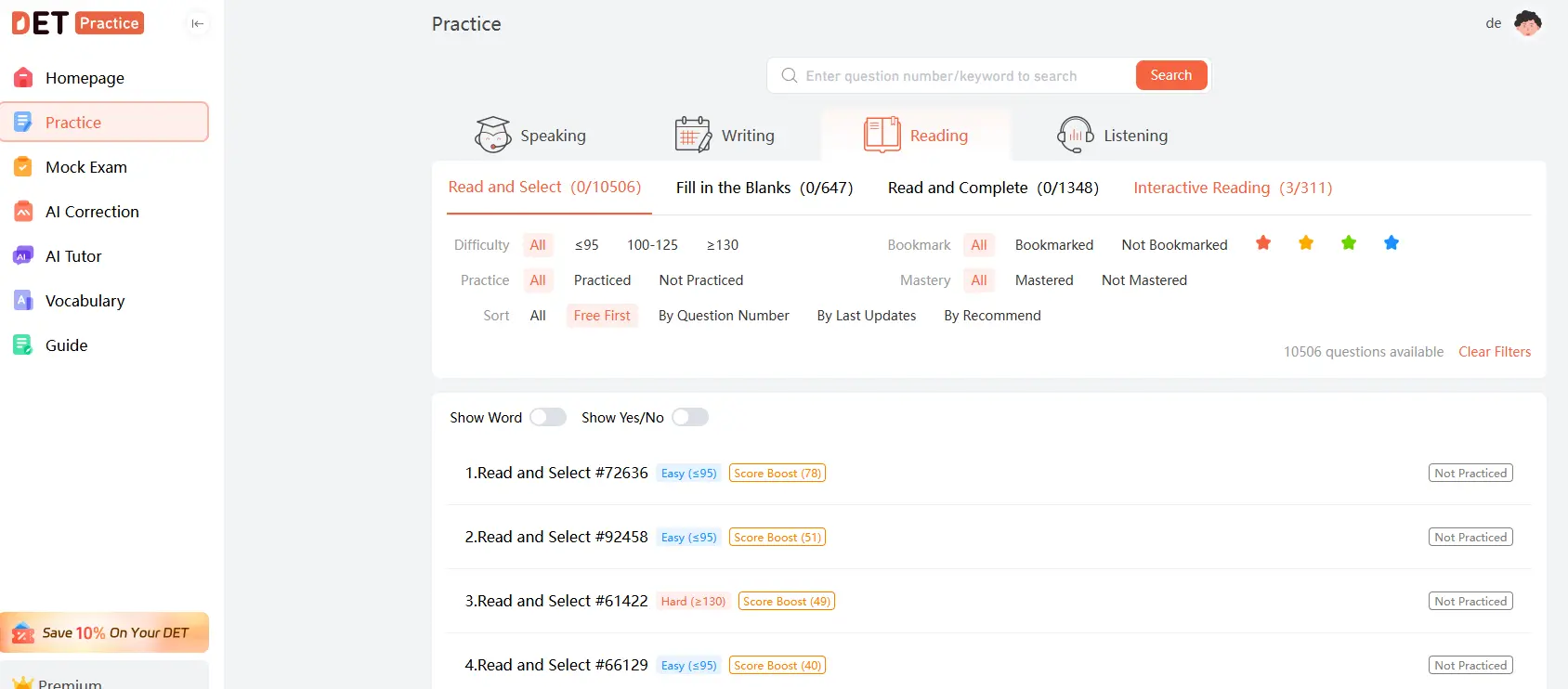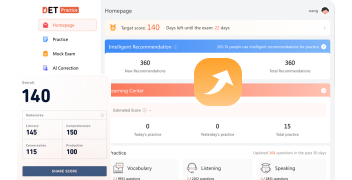I modelli possono essere utilizzati nel Duolingo English Test?
Molti studenti che si preparano per il Duolingo English Test (DET) si chiedono spesso se sia accettabile usare le template (modelli) durante l'esame. La risposta breve è sì — puoi usare le template, ma ci sono regole importanti da seguire. Le tue risposte devono sempre essere originali e riflettere la tua vera competenza in inglese. Va bene usare parole memorizzate, espressioni utili e brevi frasi, ma non dovresti mai ripetere intere frasi o lunghi blocchi di testo, poiché questo potrebbe comportare che i tuoi Duolingo English Test results (risultati del Duolingo English Test) non vengano certificati.
What Is a Template in the Duolingo English Test? (Che cos'è una template nel Duolingo English Test?)
Una template (modello) è una struttura pratica che ti aiuta ad organizzare le idee sia nella sezione di speaking (produzione orale) che di writing (produzione scritta) del Duolingo English Test. Le template non ti dicono esattamente cosa dire o scrivere — ti guidano semplicemente su come costruire la risposta in modo logico. Considera una template come un blueprint (schema) che aiuta a strutturare le idee senza limitare la creatività.
Ad esempio, molti studenti usano la popolare three-sentence template (modello a tre frasi) per il compito “Write About the Photo” (Scrivi sulla foto):
1. General Description (Descrizione generale) – Descrivi il soggetto principale o la scena generale della foto.
2. Focus on a Detail (Focalizzati su un dettaglio) – Scegli un dettaglio specifico e descrivilo più approfonditamente.
3. Speculate or Infer (Specula o deduci) – Condividi le tue idee su cosa potrebbe star accadendo o perché le cose appaiono così.
Questa struttura ti aiuta a rimanere organizzato e assicura che la tua risposta sia completa, chiara e naturale. Tuttavia, è fondamentale che tu crei il tuo contenuto. Il vocabolario, la grammatica e le idee devono venire da te — è questo che rende la tua Duolingo English Test answer (risposta del Duolingo English Test) originale e accettabile.
Templates vs. Memorized Responses (Template vs. Risposte Memorizzate)
La principale differenza tra template (modelli) e memorized responses (risposte memorizzate) nel Duolingo English Test riguarda originalità e flessibilità. Quando usi una template, generi comunque le tue frasi — solo la struttura è pre-appresa. Una memorized response (risposta memorizzata), invece, significa ripetere parola per parola frasi o paragrafi scritti da altri. Questo elimina la tua creatività e impedisce al test di valutare la tua vera competenza in inglese.
Le risposte memorizzate sono severamente vietate nel Duolingo English Test perché non permettono di dimostrare la tua reale competenza linguistica. Lo scopo dell’esame è misurare quanto bene sai usare l’inglese in modo spontaneo, non quanto sei bravo a ricordare testi già scritti.
Purtroppo, molti candidati confondono le risposte memorizzate con le template. Alcune “template” condivise online sono in realtà saggi completi già scritti — e usarle può portare i tuoi Duolingo English Test scores (punteggi del Duolingo English Test) a non essere certificati. Ecco perché è essenziale distinguere tra template autentiche e risposte memorizzate.
Per aiutarti a esercitarti in modo efficace e rispondere in modo più naturale alle condizioni reali dell’esame, puoi usare piattaforme come DETPractice. Offre allenamento guidato dall’AI dove puoi esercitarti su migliaia di domande in stile reale del Duolingo English Test, applicare template flessibili e ricevere feedback immediato. Attraverso la pratica ripetuta, imparerai ad adattare le tue risposte in modo fluido nell’ambiente d’esame — rendendo la tua performance sicura e autentica.

How the Duolingo English Test Detects Memorized Responses (Come il Duolingo English Test rileva le risposte memorizzate)
Il Duolingo English Test utilizza avanzati sistemi di rilevamento con AI per identificare i contenuti memorizzati. Confronta le risposte di ogni candidato con un grande database di risposte precedenti. Se la tua Duolingo English Test response (risposta del Duolingo English Test) è troppo simile ad altre — anche solo in parte — il sistema può segnalarla come memorizzata. In questo caso, il tuo test potrebbe non essere certificato.
Per evitarlo, assicurati che la tua lingua e le tue espressioni siano sempre uniche. Anche se segui una struttura familiare, usa il tuo vocabolario, esempi e modelli di frase per garantire che la risposta sia davvero originale.
Can You Memorize Vocabulary for the Duolingo English Test? (Puoi memorizzare il vocabolario per il Duolingo English Test?)
Assolutamente sì — anzi, dovresti farlo! Memorizzare advanced vocabulary (vocabolario avanzato) è uno dei modi più efficaci per migliorare il tuo Duolingo English Test score (punteggio del Duolingo English Test). Un vocabolario ricco può rendere le tue risposte più fluide, precise e naturali. Tuttavia, memorizzare intere frasi o paragrafi può far sembrare le tue risposte artificiali e ripetitive.
Invece, concentrati sull’apprendimento di useful academic words (parole accademiche utili), collocations (collocazioni) e short expressions (brevi espressioni) che puoi usare in modo flessibile in contesti diversi. Frasi come “peaceful atmosphere”, “crowded marketplace” o “it seems that…” possono rendere le tue Duolingo English Test answers (risposte del Duolingo English Test) più raffinate senza sembrare memorizzate.
Final Thoughts (Considerazioni finali)
In sintesi, puoi usare le template nel Duolingo English Test, ma devi usarle con intelligenza. Le template sono strumenti organizzativi che ti aiutano a presentare le idee in modo chiaro, non copioni da memorizzare. Rendono le tue risposte più strutturate e sicure — ma il contenuto deve sempre essere il tuo.
Il Duolingo English Test è progettato per valutare la tua vera competenza in inglese, non la tua capacità di memorizzare. Usa le Duolingo English Test templates (modelli del Duolingo English Test) come guida, arricchisci il tuo vocabolario e esercitati ad esprimere idee in modo naturale.
Se vuoi rafforzare la tua preparazione, considera di iscriverti a DETPractice — dove puoi ora registrarti per 3 giorni di accesso VIP gratuito e godere di pratica illimitata con oltre 18.000 domande in stile reale Duolingo English Test. Praticare regolarmente con template autentiche ti aiuterà ad adattarti con flessibilità al test e a affrontare l'esame con sicurezza.






